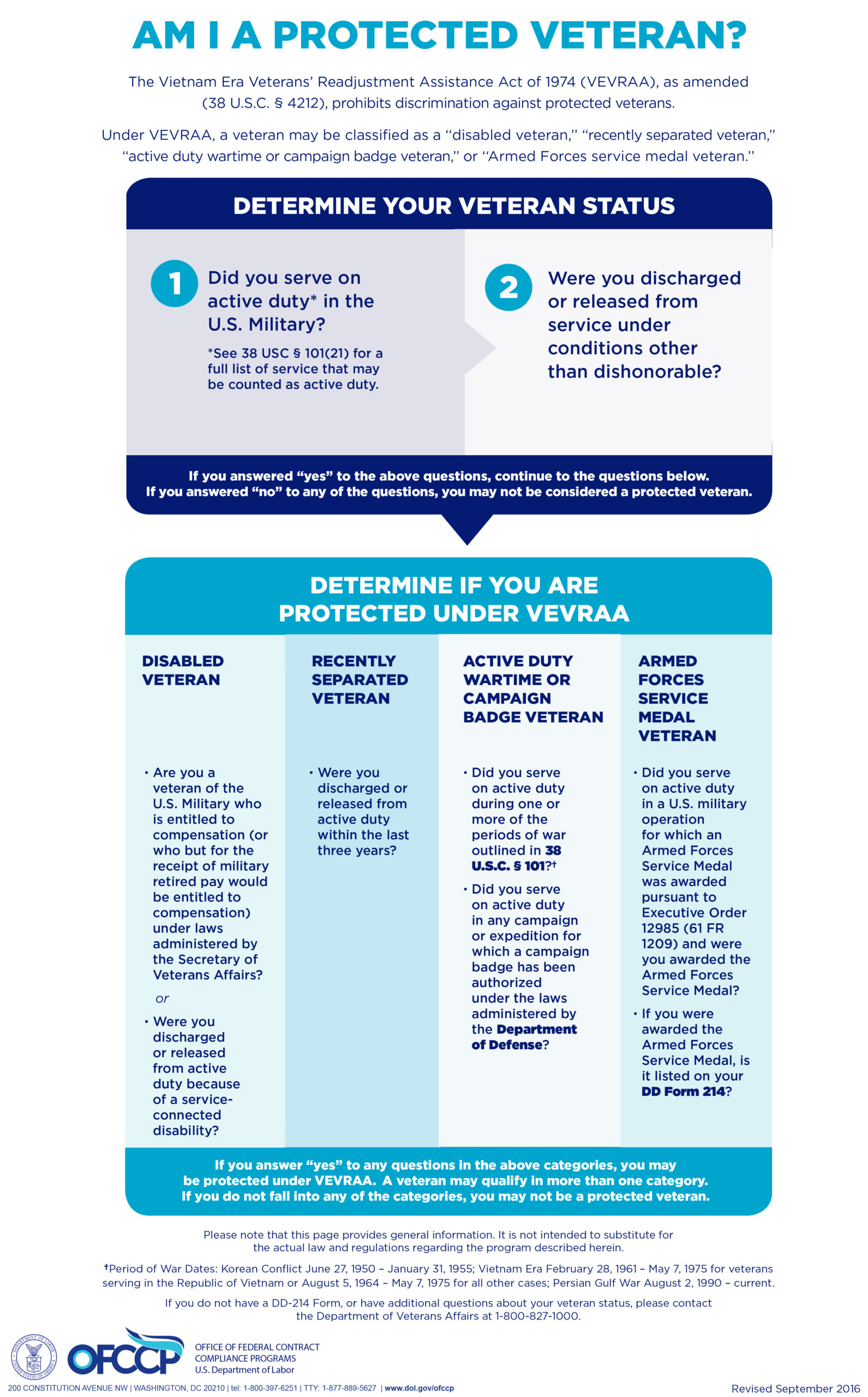BMS Direct, Inc. is an equal opportunity employer. As a government contractor subject to Executive Order 11246 and the Vietnam Era Veteran's Readjustment Assistance Act (VEVRAA), BMS Direct, Inc. is required to submit reports to the US Department of Labor and Equal Employment Opportunity Commission each year identifying the number of our employees belonging to each specified protected veteran category, gender and race/ethnicity category.
Submission of this information is voluntary, and refusal to provide it will not subject you to any adverse treatment. The information provided will be kept confidential, maintained separate from other personnel records and only accessed by the human resource department.
EEO-1 Self-Identification Form

Voluntary Self-Identification of Disability
Why are you being asked to complete this form?
Because we do business with the government, we must reach out to, hire, and provide equal opportunity to qualified people with disabilities.(1) To help us measure how well we are doing, we are asking you to tell us if you have a disability or if you ever had a disability. Completing this form is voluntary, but we hope that you will choose to fill it out. If you are applying for a job, any answer you give will be kept private and will not be used against you in any way.
If you already work for us, your answer will not be used against you in any way. Because a person may become disabled at any time, we are required to ask all of our employees to update their information every five years. You may voluntarily self-identify as having a disability on this form without fear of any punishment because you did not identify as having a disability earlier.
How do I know if I have a disability?
You are considered to have a disability if you have a physical or mental impairment or medical condition that substantially limits a major life activity, or if you have a history or record of such an impairment or medical condition.
Disabilities include, but are not limited to:
- Blindness
- Deafness
- Cancer
- Diabetes
- Epilepsy
- Autism
- Cerebral palsy
- HIV/AIDS
- Schizophrenia
- Muscular dystrophy
- Bipolar disorder
- Major depression
- Multiple sclerosis (MS)
- Missing limbs or partially missing limbs
- Post-traumatic stress disorder (PTSD)
- Obsessive compulsive disorder
- Impairments requiring the use of a wheelchair
- Intellectual disability (previously called mental retardation)
Reasonable Accommodation Notice
Federal law requires employers to provide reasonable accommodation to qualified individuals with disabilities. Please tell us if you require a reasonable accommodation to apply for a job or to perform your job. Examples of reasonable accommodation include making a change to the application process or work procedures, providing documents in an alternate format, using a sign language interpreter, or using specialized equipment.
(1)Section 503 of the Rehabilitation Act of 1973, as amended. For more information about this form or the equal employment obligations of Federal contractors, visit the U.S. Department of Labor’s Office of Federal Contract Compliance Programs (OFCCP) website at www.dol.gov/ofccp.

